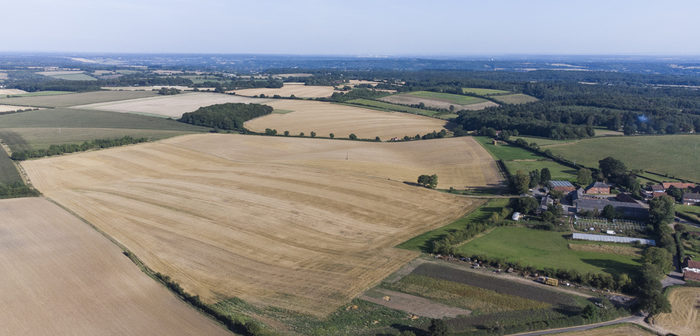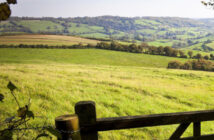The James Hutton Institute will be the co-lead in a first-of-its-kind consortium of 34 leading research and stakeholder organisations set up to help the four UK administrations address land use and agriculture’s role as a greenhouse gas emitter.
The “Land Use for Net Zero” (LUNZ) Hub is backed by £6.5 million in funding from UK Research and Innovation, and will supply timely evidence around land use, including renewable energy, soil carbon and green finance.
It is co-led by the University of Leceister and will include the University of Aberdeen and SRUC amongst others. The Hutton will also be the main administrator and lead the £1.5 million Agile Policy Centre, providing project management and core research and expertise.
Hub co-lead Professor Lee-Ann Sutherland, from the Hutton, said: “The science behind land use is highly complex. It is influenced by a range of economic, social and environmental factors, and complicated further by a changing evidence base, novel market forces, the emergence of new data and models, and disruptive technologies such as artificial intelligence.
Our aim is to bridge the gap between researchers and policy makers and our work will be focused on meeting specific policy-maker needs, giving them the evidence they need in the format and timeframe they need it.
“Our consortium has developed a series of innovative mechanisms to do just that – an Agile Policy Centre, Net Zero Futures Platform, and Creative Methods Lab – each tailored to generate clear, robust answers to urgent questions.”
Agriculture and land us have a major impact on greenhouse gas emissions, as well as other environmental, societal and economic outcomes. The declaration at COP28 on sustainable agriculture states the Government’s intent to act on land use and climate change by increasing financial support. The LUNZ Hub will act as a conduit for these actions.
The Hub is also taking an innovative approach to stakeholder participation, as hub co-lead, Professor Heiko Balzter (University of Leicester), explains: “Creating a fair, realistic path to net zero in the land use sector can only be achieved with the involvement of a wide range of stakeholders throughout the process– to provide their expertise, share the hub’s outputs and ensure its proposals work in practice as well as theory.
“Our consortium reflects this – ranging from those at the cutting edge of climate change modelling to farmers groups, advisory organisations, non-governmental organisations and an arts collective. Their range and profile will ensure the hub’s impact extends throughout society – so everyone can engage in land use transformation – from the food they buy to their holiday, housing and investment decisions.”




